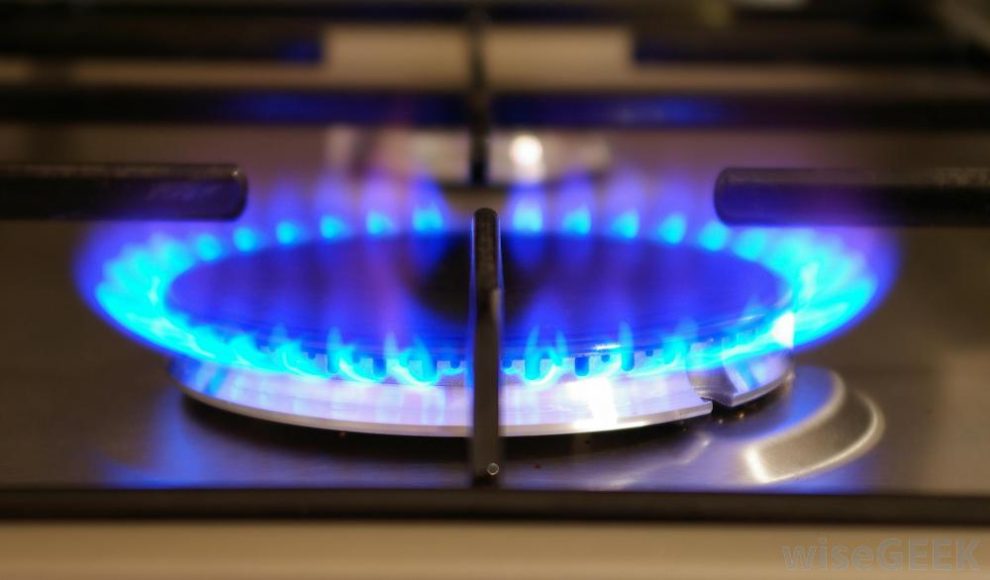AMOST 200,000 households in Wales were living in fuel poverty at the end of last year, new figures have revealed.
The figures also show that 98% of households on lower incomes are now estimated to be in fuel poverty following the recent price cap increase.
Citizens Advice has said there is a “catastrophe unfolding for people across Wales” as 91,700 households are now predicted to be in severe fuel poverty.
Data published by Welsh government reveals the scale of the cost of living crisis in October – six months before the rise of the domestic energy cap by 54 per cent this month.
The modelled figures release show that 196,000 households in Wales were estimated to be living in fuel poverty, equivalent to 14% of households.
38,000 households were estimated to be living in severe fuel poverty and a further 153,000 households – equivalent of 11 per cent of households – were at risk of fuel poverty.
On top of soaring energy prices, households must also pay increased standing charges on their domestic energy bills and people in Wales are among the hardest hit.
The highest increases in the UK are thought to be in North Wales, with standing charges increasing by 102 per cent. These additional costs have a disproportionately negative effect on lower income households and those on pre-payment meters.
The main data from the stats modelling release states:
196,000 households in Wales were estimated to be living in fuel poverty, equivalent to 14% of households.
38,000 households were estimated to be living in severe fuel poverty, equivalent to 3% of households.
153,000 households were estimated to be at risk of fuel poverty, equivalent to 11% of households.
169,000 vulnerable households in Wales were estimated to be living in fuel poverty, equivalent to 14% of vulnerable households.
26,000 vulnerable households were estimated to be living in severe fuel poverty, equivalent to 2% of vulnerable households.
141,000 vulnerable households were estimated to be at risk of fuel poverty, equivalent to 12% of vulnerable households.
130,000 lower income households in Wales were estimated to be living in fuel poverty, equivalent to 59% of all lower income households.
34,000 lower income households were estimated to be living in severe fuel poverty, equivalent to 16% of lower income households.
58,000 lower income households were estimated to be at risk of fuel poverty, equivalent to 26% of lower income households.
and…
Up to 45 per cent (614,000) of all households could be in fuel poverty following the price cap increase in April 2022
Up to 8 per cent (115,000) of all households could be in severe fuel poverty
Up to 15 per cent (201,000) of all households could be at risk of falling into fuel poverty.
Energy price rises are likely to hit lower income households disproportionately, as they spend a higher proportion of their income on utility bills.
So for households on lower incomes there could be significant increases with up to 217,700 (98%) predicted to be in fuel poverty following the price cap increase of April 2022 and up to 91,700 (41%) predicted to be in severe fuel poverty.
The remaining households on low incomes are all potentially at risk of fuel poverty (3,500, 2%).
Minister for Social Justice, Jane Hutt, has described today’s figures as “stark and worrying”.
She said: “They show the depth of the energy crisis before the winter started and before OFGEM raised the domestic energy cap by 54% in April.
“Sadly, we know the worst is yet to come. We are in the midst of an unprecedented cost-of-living crisis, which is being driven by runaway energy prices. The war in Ukraine has deepened this crisis.
“The introduction of the new energy price cap at the start of the month risks plunging tens of thousands more people into energy insecurity and fuel poverty.
“We hear terrible accounts daily about people and families who are afraid to turn their heating on and from families who face the awful choice between heating and eating.
“Although these are just estimates, these figures underline, once again, the need for urgent action from the UK Government to alleviate the financial pain and worry being experienced by families and households all over Wales.
“The action offered to date – the £200 rebate on electricity bills, which must be repaid by every bill payer over five years – is too little.
“The Spring Statement was an opportunity for the UK Government to protect the most vulnerable in our society, instead it was an ideological, regressive statement from the Chancellor, which lacked practical measures to help those who need help the most – there is nothing for those who cannot work and those on lower incomes.”
Luke Young, Head of Policy and Campaigns at Citizens Advice Cymru said:
“The latest fuel poverty estimates should send a cold shiver down the spine of every politician and decision maker.”
“Ninety eight per cent of low income households are now estimated to be in fuel poverty, with forty one per cent of low income households in severe fuel poverty.”
“This is a catastrophe unfolding for people across Wales.”
“We have continually warned that people have been unable to meet their basic needs.”
“Our services have seen month-on month records break as ever more need crisis support, and energy price rises have pushed more into poverty.”
“The help we have been calling for – money directly to lower income households through the benefits system – is now urgently needed.”
The Welsh Government has now reiterated its calls to the UK Government to “take concerted and targeted action to ease the cost-of-living crisis” by:
Paying the £200 electricity bill rebate as a non-repayable grant to all bill payers.
Introducing a lower energy price cap for lower income households so they are better able to meet the costs of their energy.
Increasing the rebate paid through the warm homes discount and winter fuel schemes.
Removing all the social and environmental policy costs from household energy bills and instead meeting them from general taxation, at least part-
funded by a windfall tax on the excess profits being made by gas and oil producers.
Reinstating the £20-a-week uplift to Universal Credit.
Ms Hutt added: “We will continue to do all we can to help people through this unprecedented cost-of-living crisis. Since November, we have invested more than £380m in a package of targeted support for people. This includes the first round of the Winter Fuel Support Scheme – a £200 payment for eligible low income households. This will be extended in winter 2022-23 to reach more households.
“People are also starting to receive their £150 cost-of-living payment – this is available to everyone paying council tax in bands A to D and all those receiving support from the Council Tax Reduction Scheme in all council tax bands. A further £25m will be available to local authorities in the form of a discretionary fund.
“I will be chairing a second cost-of-living summit in the coming months to look again at more we can do, working with partners, to address the inequalities that the current crisis has brought so starkly into focus.”
Two weeks ago the UK Government issued a ‘fact sheet’ detailing what new steps they have taken to tackle the cost of living crisis, it states:
Cutting fuel duty
A 12-month cut in the main rates of fuel duty for petrol and diesel of 5 pence per litre. This is the largest cash terms cut that has ever been applied to all fuel duty rates at once and represents savings for consumers worth almost £2.4 billion over the next year. This comes on top of freezes to fuel duty for 12 years in a row.
Raising National insurance thresholds
National Insurance starting thresholds will rise to £12,570 from July 2022, meaning hard-working people across the UK will keep more of what they earn before they start paying tax. The cut, worth over £6 billion, will benefit 30 million working people with a typical employee saving over £330 a year and, means the UK now has some of the most generous tax thresholds in the world.
Reducing NICs for lower-earning self-employed people
from April, self-employed individuals will not pay Class 2 NICs on profits between the Small Profits Threshold and Lower Profits Limit, meaning lower-earning self-employed people can keep more of what they earn while continuing to build up National Insurance credits. This change represents a tax cut for around 500,000 self-employed people worth up to £165 per year.
Universal Credit (UC) taper rate
Reducing the UC taper rate from 63% to 55% and increasing work allowances by £500 per annum from late 2021. This is effectively a tax cut for the lowest paid in society worth around £1.9 billion in 2022-23. This change also means that 1.7 million households will on average keep around an extra £1,000 on an annual basis.
Help with energy bills
A £9.1 billion energy bill rebate package, worth up to £350 each for around 28 million households. Domestic energy customers in Great Britain will receive a £200 reduction in energy bills this Autumn, which will be paid back automatically over the next 5 years. Households liable for Council Tax in Bands A-D in England will also receive a £150 non-repayable Council Tax Rebate, and Local Authorities are receiving extra discretionary funding to help those who are in need but not eligible.
The Household Support Fund
Doubling the Household Support Fund to £1billion by providing an extra £500 million from April 2022, on top of the £500 million already provided since October 2021. The Fund will help households with the cost of essentials such as food, clothing and utilities and, in England, will continue to be distributed to Local Authorities, who are best placed to direct help to those who need it most. Devolved administrations will receive £79 million of this additional funding.
Freezing alcohol duty
As announced at Autumn Budget 2021, we are freezing alcohol duty for 2022-23, for the third year in a row. Duty rates on beer, cider, wine and spirits will be frozen in 2022-23, saving £3 billion over the next 5 years. Consumers will save 3p off a pint of beer, 2p off a pint of cider, 14p off a 75cl bottle of wine and 52p off a 70cl bottle of Scotch.


















Add Comment